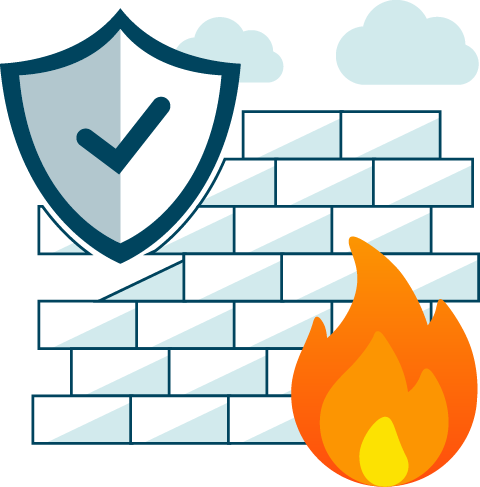" A firewall is a network security device or software that monitors and controls incoming and outgoing network traffic based on predetermined security rules. The primary purpose of a firewall is to establish a barrier between a secure internal network and untrusted external networks, such as the internet.There are two main types of firewalls: hardware firewalls and software firewalls."

Add these affordable features to your server when you need them in the cloud panel.
High availability is important for enterprises and large organizations that cannot afford unprotected networks if the firewall system goes down.
It modifies and masks the source information in the outgoing data by acting as an intermediary between the web traffic and the company’s network.
Logging and reporting capabilities give IT administrators a bird’s eye view of the network in terms of the incoming and outgoing flow of data.
VPNs use tunneling protocols to create a secure connection between remote devices and the company’s private network.
Network segmentation divides a single enterprise network into a smaller logical network for the sake of maintenance and policy division.
Policies and rules are the heart of a firewall engine. A good firewall solution provides easy creation, maintenance, and migration of these policies.
Organizations with a vast number of remote employees must consider VPNs or a cloud-based firewall.
The shortlisted firewall security software must be compatible with other security solutions that are in place.
Save money and time with OperaVPS! 24x7 online tech support, unlimited features, and
instant activation at the lowest possible cost in market.
Get visibility of the underlying security policies implemented on firewalls and other security devices across the network. Understand your network’s traffic flows.
Enabling unused rules to be included in a policy goes against best practices and may pose a risk to the organization.
Firewall rules support applications or processes that require network connectivity to and from specific servers, users, and networks.
Each firewall vendor often has its own management console, but your network is made up of multiple devices from an assortment of vendors.
Simplify and reduce audit preparation efforts and costs with out-of-the-box audit reports for major regulations including PCI DSS, HIPAA, SOX, NERC, and GDPR.
DPI involves inspecting the actual data content of packets as they traverse the network.